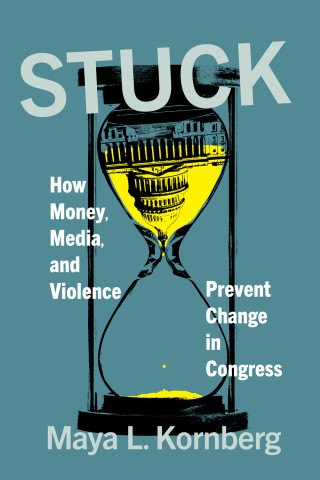
Reviews
[Way] challenges the strong and persistent tendency in the literature to look for causes of political pluralism in robust institutions, emerging civil society, or the victory of a democratic culture...Highly recommended [for] lower-division undergraduates through faculty.
That Way’s argument still has the power to act as a corrective—even after the wave of literature following what Thomas Carothers called the ‘end of the transition paradigm’—speaks both to the quality of the book, as well as to the apparent perennial urge (which the book critiques) to interpret moments of political competition as intimations of democratisation.
Pluralism by Default is a tour de force brimming with theoretical originality and effective use of in-depth case studies. It will enrich our understanding of post-communist politics and help reshape the way we think about democracy, authoritarianism, and regime change more broadly.
Fascinating and engagingly written, Pluralism by Default is the definitive statement of Lucan Way's brilliant signature idea that pluralism can be understood not only as the outcome of a democratization process but also as the product of weak authoritarianism.
Pluralism by Default will change the way we understand the emergence of democracies and the consolidation of autocracies. It will fascinate political scientists, domestic and foreign policymakers, and general readers who care about how democracies emerge, and what makes them last – which should be all of us.
A major project by one of the leading scholars of comparative democratization, this accessible and easy-to-follow book will invigorate the discussion of democratization in post-Soviet countries.
Pluralism by Default addresses an interesting puzzle: why competitive regimes have emerged in many places under unfavorable conditions. Way demonstrates that pluralism has been maintained chiefly due to the inability of rulers with an authoritarian agenda to have it their way. This studymarked by thorough empirical inquiries and thought-provoking analysesdeserves a wide readership.
Book Details
Acknowledgments
Acronyms
1. Introduction
2. Perestroika and the Origins of Post-Soviet Pluralism by Default
3. Pluralism by Default in Ukraine
4. Pluralism by Default in Moldova
5. Authoritarian
Acknowledgments
Acronyms
1. Introduction
2. Perestroika and the Origins of Post-Soviet Pluralism by Default
3. Pluralism by Default in Ukraine
4. Pluralism by Default in Moldova
5. Authoritarian Consolidation in Belarus
6. Consolidated and Unconsolidated Authoritarianism in the Former Soviet Union
7. Conclusion
Appendix A
Appendix B
Notes
Bibliography
Index





